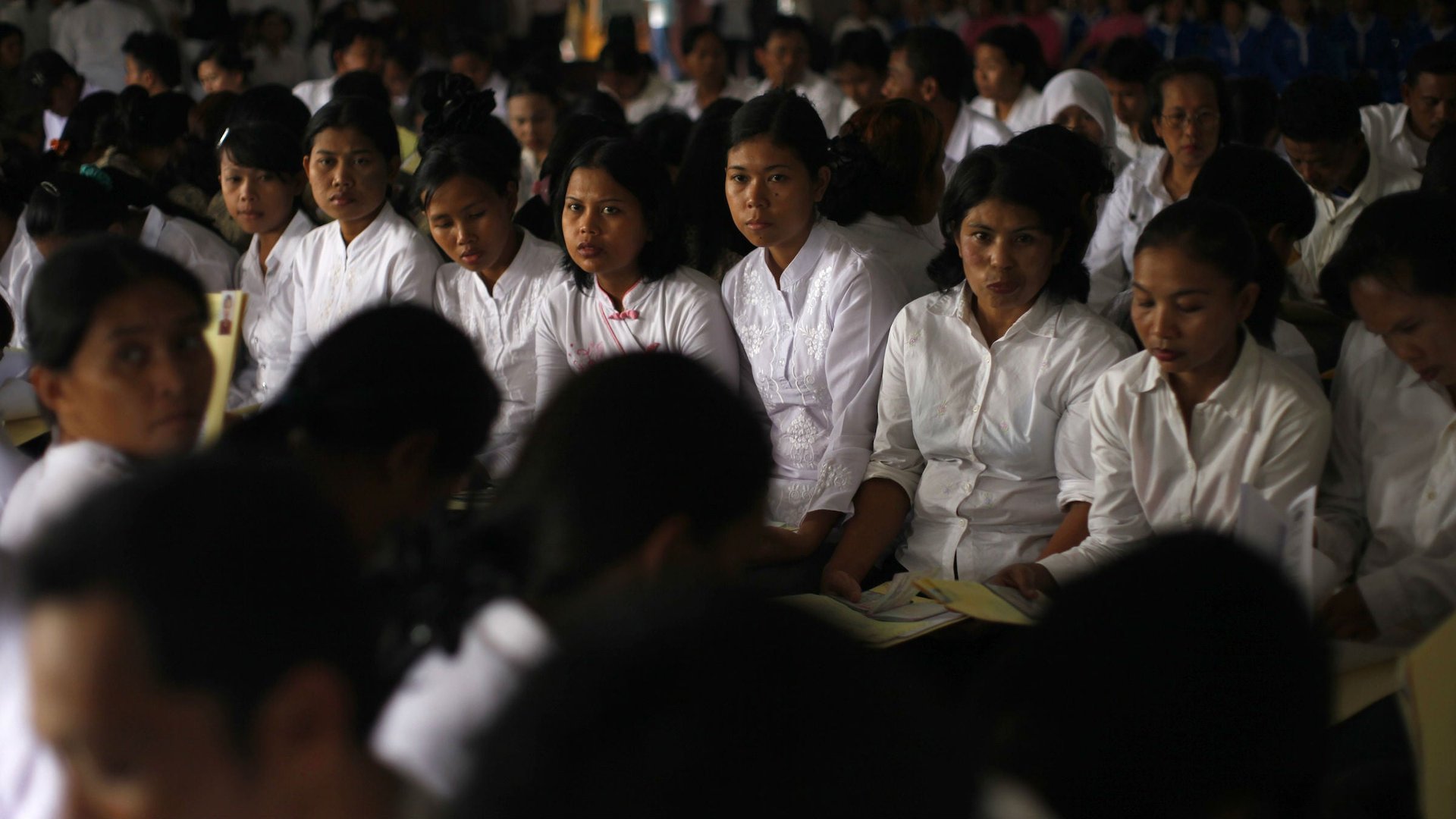Indonesia wants to stop exporting its maids to the rest of the world
Indonesia has reiterated a pledge to stop exporting maids to the rest of the world by 2017. Aiming comments directly at Malaysia, where many Indonesian maids move for work, Indonesia’s consul-general in Sarawak said there would be “not only no more export of domestic helpers to Malaysia – [but] to everywhere in the world.”


Indonesia has reiterated a pledge to stop exporting maids to the rest of the world by 2017. Aiming comments directly at Malaysia, where many Indonesian maids move for work, Indonesia’s consul-general in Sarawak said there would be “not only no more export of domestic helpers to Malaysia – [but] to everywhere in the world.”
Indonesia’s domestic workers are an important source of revenue for the country via remittances sent back home. Yet abuses against these workers, mostly women, have continued despite reforms like establishing minimum wages and other standards with the countries that import them.
But the ban could just mean Indonesian maids are replaced by another group. Demand for cheap domestic help is strong in in Southeast Asia, where wealthier nations like Singapore, Thailand, and Malaysia abut poorer ones like Indonesia, Myanmar, Cambodia and the Philippines. In Singapore, Indonesian maids became sought-after only when the Philippines banned its maids from the city-state in 1995, when a Filipina maid was executed for allegedly killing another maid and a local Singaporean. Rising wage costs for Filipino and Indonesian domestic workers have recently prompted a surge in maids from Myanmar. In response to Indonesia’s comments this weekend, the president of Malaysia’s Association of Foreign Maid Agencies said the group would keep looking for new countries to source maids from.
Over the years, the poorer Southeast Asian countries have frequently issued temporary bans on their maids going to certain countries, only to see problems crop up again once the moratoriums have been lifted. Indonesia, for example, previously barred its domestic workers from Malaysia and Saudi Arabia. Today, online forums advertise the trade of Indonesian maids and human-rights groups call them modern-day slaves whose situations “amount to forced labor, trafficking or debt bondage.” Cambodia is also restricting its maids from going to Malaysia. A group of maid associations in the Philippines said they won’t send workers to Singapore starting Sept 2.
The maid trade causes diplomatic ructions too. After the 1995 execution, Singapore and the Philippines mutually withdrew their ambassadors. To prevent an Indonesian woman from being executed in Saudi Arabia, Indonesia may pay $1.87 million to the family of a Saudi man that she killed in 2007. (She says she struck him with a rolling pin in self-defense.) In 2011, Indonesia formally complained to Saudi Arabia after authorities there executed an Indonesian maid who had killed her employer without notifying Indonesia of its plans. (That prompted the last Indonesian moratorium on sending maids to Saudi Arabia, which ends this month.)
But even if Indonesia’s new ban on export maids is worldwide, it won’t mean an end to the practice. The government wants to set up a formal work scheme where foreign employers hire workers for specific tasks like cooking and babysitting rather than to be a household’s catch-all servant. Given that over one in ten Indonesians live in poverty, it’s likely that many will go through informal, as well as formal, channels to keep finding work abroad.